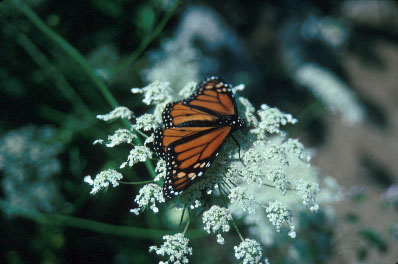Diversity of Life - EBIO 1010 / EBIO
1015

This page is for students enrolled in Dr. Fleury's section only!
Diversity of Life - EBIO 1010 / EBIO
1015

Stern 4030, x8290 (504-862-8290)
email: bfleury@tulane.edu
home page: http://www.tulane.edu/~bfleury/
Questions about registration for Diversity lab
and lecture should be directed to our Operations Manager,
Mr. Jack Leslie in Boggs 400, x8282, jleslie4@tulane.edu
To supplement your text for the material on the history of
evolution, you will find a great web page at UC Berkeley on early
evolutionary thought:
http://evolution.berkeley.edu/evolibrary/article/0_0_0/history_01
I've also posted a study guide for the evolution and organismal
material, which supplements your text and lab manual:
| A 93-100 | B+ 87-89 | C+ 77-79 | D+ 67-69 |
| A- 90-92 | B 83-86 | C 73-76 | D 60-66 |
| B- 80-82 | C- 70-72 | D- 55-59 |
| Date | Topic | Textbook (10th ed.) | Lab |
| June | |||
| 27 |
Introduction, Origin of Life | Ch. 1, UC Berkeley web | |
| 28 |
Darwin and Mendel |
|
Intro, Dichotomous Key |
| 29 |
Variation | Ch. 2 | Evolution, Cell Division |
| 30 |
Population Genetics |
Ch. 3 | Microscopy |
| July |
|||
| 1 |
Micro & Macroevolution |
Ch. 4-8 |
|
| 4 |
Holiday |
||
| 5 |
Kingdoms Bacteria, Archaea,
Protista |
Ch. 9-11 | Bacteria, Protists |
| 6 |
How to Be an Animal | Lab Guide #1, Ch. 15 | |
| 7 |
First Lecture Exam | |
Sponges-Rotifers |
| 8 |
Porifera, Cnidaria | Ch. 15 |
|
| 11 |
Platyhelminthes, Mollusca |
Ch. 16 |
|
| 12 |
Annelida | Ch. 16 |
Molluscs, Annelids, Nematodes |
| 13 |
Nematoda, Arthropoda | Ch. 16 |
|
| 14 |
Arthropoda 2 |
Ch. 16 |
Arthropods |
| 15 |
Echinodermata | ||
| 18 |
Protochordates, Chordates |
Ch. 17 | |
| 19 |
Fungi | Ch. 14 | Echinoderms, Chordates |
| 20 |
Second Lecture Exam | Fungi |
|
| 21 |
How to Be a Plant, Bryophytes | Ch. 12, Lab Guide #1 | Non-seed plants |
| 22 |
Ferns and Fern Allies |
Ch. 12 |
|
| 25 |
Seed Plants I - Gymnosperms | Ch. 12 | |
| 26 |
Seed Plants II - Angiosperms |
Ch. 13, 18, 19 |
Gymnosperms, Angiosperms |
| 27 |
Behavior (Competition, Predation) | Ch. 20 |
Field trip |
| 28 |
Behavior (Behavioral ecology, courtship) | Ch. 20 |
Animal Behavior |
| 29 |
Final Exam | ||
| |
Return
to B. Fleury's Home Page
This page was last updated on 6/26/16